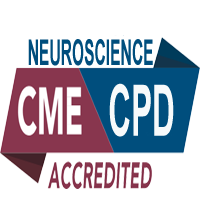
Oleksander Makarenko
Taras Shevchenko National University of Kyiv, Ukraine
Title: New aspects of the hemorrhage stroke (HS) immunological mechanism complication
Biography
Biography: Oleksander Makarenko
Abstract
In HS investigations researchers didn't pay much attention to disorders of the immune system, appearing under acute disorders of brain circulation. For evaluation of the immune disorders, under experimental hemorrhage stroke (HS) the experimental study was performed on 105 white mice and 24 white rats, in the conditions of HS modeling with different degrees of intensity. The first group was performed with the help of the part of a metal mandrin, the second group – by mandrin destroyed the central part of the brain and the third group – by addition injection of blood. An initial immune humoral response and cell immunity level, which were evaluated according to the reaction of hypersensitivity of slow type, were studied. The quantity increase of agglutinin-like antibodies is especially observed in the first group animals. HS was provoked according to the method, described above. The animals were decapitated on the 1st, 3rd and 10th day after the lethal dose of thiopental-sodium. The morphological study of the sub-neocortical injury was performed by thionine staining of the frontal brain slices. Ten rats from 14 under examination of brain showed clear inflammation changes of the brain tissue. The sings of productive ependimatitis and local vasculitis, consisted of microglia cells and lymphocytes, resembling inflammatory changes in the brain during viral infections (Herpes family). During the post-stroke condition development, we succeed in getting of the evidence of pathomorphological changes and activation of the latent infection in the form of encephalitis.

